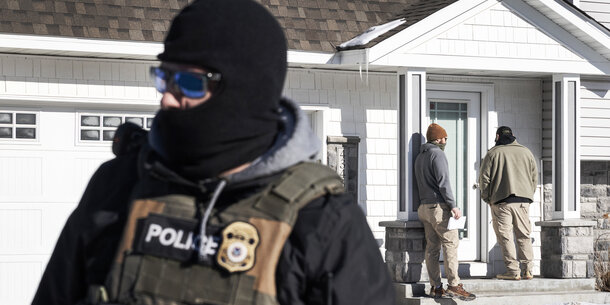This was first published in the Daily News.
In the three years since New York City passed the landmark Public Oversight of Surveillance Technology (POST) Act, the NYPD has consistently flouted the law’s requirements to come clean about its use of spying tools.
At the same time, the police continue to spend billions of taxpayer dollars on new technologies that facilitate wide-ranging surveillance in the name of public safety — from aerial drones that monitored parades and backyard barbecues during Memorial Day weekend, to always-listening gunshot detection technology that can pick up private conversations on city streets, to ubiquitous police cameras that discreetly run images of everyday New Yorkers through facial-recognition software.
Our social media activity is not safe either, with evidence that the NYPD deploys social media monitoring tools that use artificial intelligence to decide whether a person poses a public safety risk and that identify individuals to target for monitoring based on police-chosen keywords. The usefulness of these surveillance tools in protecting public safety is not established and some are known to operate in racially biased ways. But their impact on New Yorkers’ civil rights and civil liberties is without doubt.
Public demand for police accountability was a driving force behind the passage of the POST Act, amid growing evidence the police were targeting protesters and communities of color for suspicion and scrutiny. The NYPD’s routine noncompliance with the law is a slap in the face to millions of New Yorkers.
On Friday, the City Council will finally hold an oversight hearing regarding this lack of transparency — a hearing that the NYPD has deferred multiple times in the past several months. Members are set to question the department about its failures to disclose how, when, where, and against whom it deploys its surveillance technologies, and what measures are in place — if any — to protect against abuses.
The public will testify to the impact of these tools on the civil rights, civil liberties, and privacy of New Yorkers. More importantly, lawmakers will consider reforms to the POST Act that would give the law sharper teeth, so that the NYPD can no longer sidestep the law’s reporting requirements while still adding to its arsenal of surveillance tools.
Recognizing how little the public knew about police surveillance, the Council passed the POST Act in 2020. It requires the NYPD to disclose new surveillance technologies it is considering, along with policies explaining how the technologies work, the rules that will guide their use, and how the NYPD will protect New Yorkers’ rights. The law also requires a public comment period. In crafting the law, the Council took pains to ensure it promoted police transparency without saddling the NYPD with overly burdensome reporting requirements. But the NYPD has skirted even these basic transparency measures.
A 2022 report by the NYPD’s own inspector general confirmed what advocates have been reporting for some time — the NYPD is not obeying the law. The IG found that the department provides the most minimal possible information on some technologies, while avoiding reporting altogether on others. The IG concluded police disclosures were “insufficient” to achieve “appropriate transparency with the public.”
Nothing has changed in the year since that report. In 2023, the NYPD added five new surveillance tools — including robot dogs, autonomous security robots, and GPS guns that shoot tracking devices at cars — without releasing any information on these new technologies, or considering what safeguards might be needed. The department justified this by shoehorning the new technologies into policies that were already public for older tools, a practice the inspector general called “contrary to the intent of the POST Act.”
One way to solve this problem is to tighten the language of the POST Act so that the NYPD can’t get around its responsibilities by providing as little information on its surveillance practices as possible. Two bills introduced by City Council Members Julie Won, Amanda Farias and Crystal Hudson would add more specific language on what the NYPD must report and require the police to provide more detailed information to the inspector general.
It’s long past time for the NYPD to fulfill its obligations under the law and provide the transparency New Yorkers rightly demand. What we want is simple: a strengthened law that the police will follow by informing New Yorkers about the surveillance technologies they are using, and why. A more open and honest approach to the use of surveillance technology is not just a legal requirement; it’s a matter of respect for the rights and privacy of New York City’s residents.
Gutiérrez chairs the City Council Committee on Technology.



